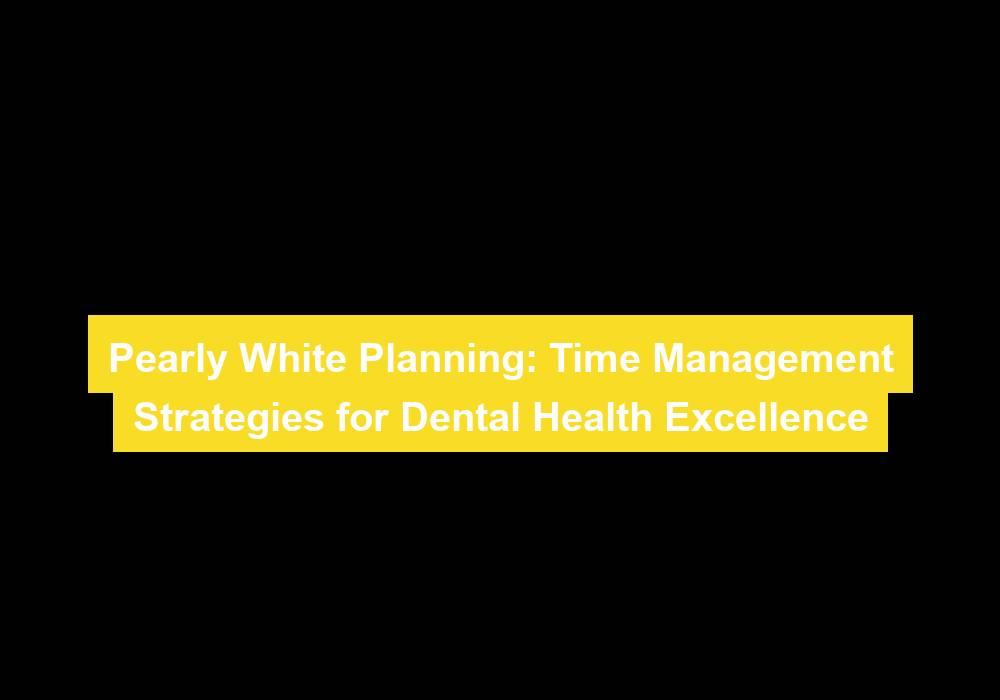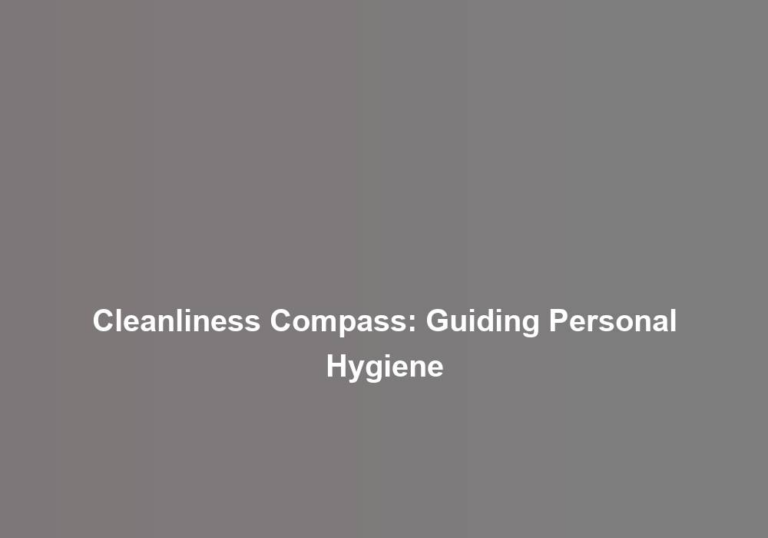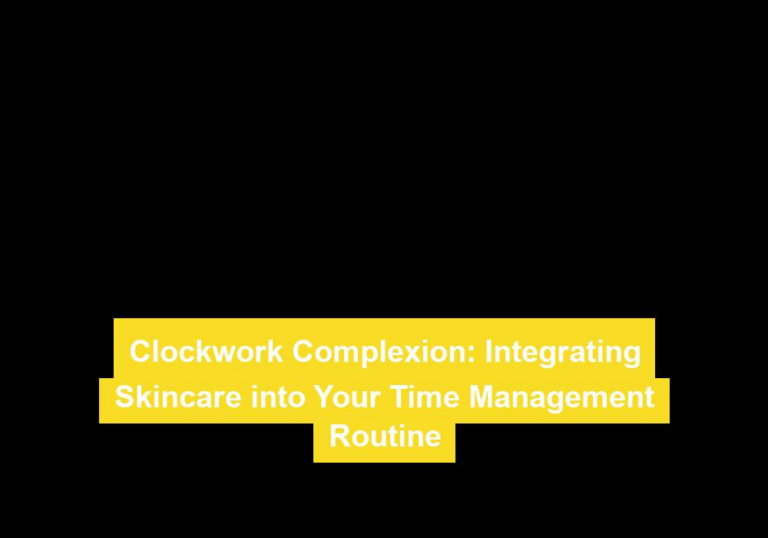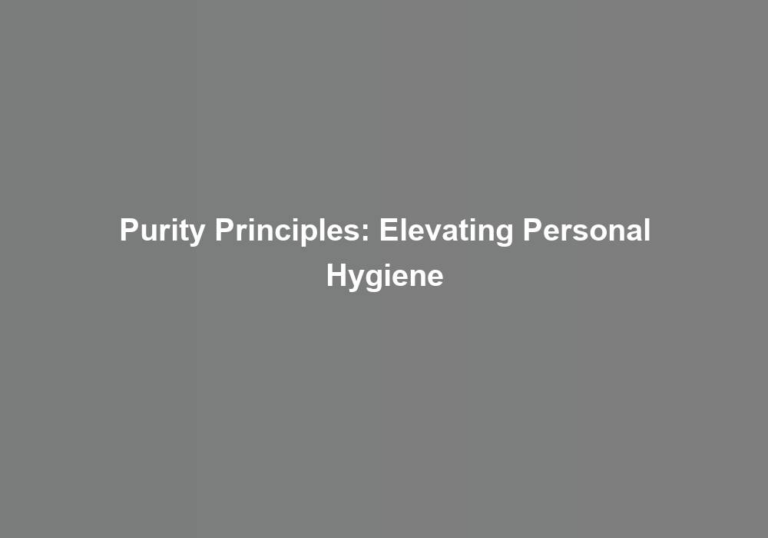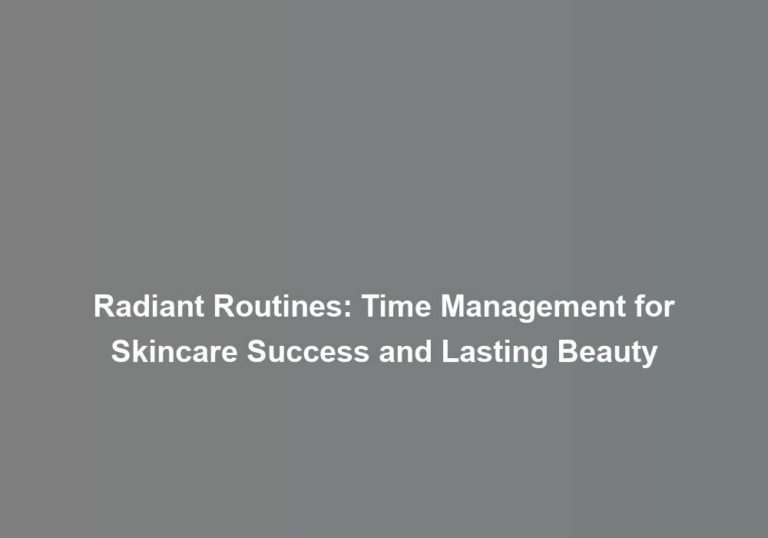Pearly White Planning: Time Management Strategies for Dental Health Excellence
Maintaining a healthy smile requires more than just the occasional brush and floss. ItG??s about finding practical ways to integrate dental care into your daily routine without feeling overwhelmed. As you navigate through the demands of work, family, and personal commitments, you may find it challenging to prioritize your oral health. However, there are effective time management strategies that can help you achieve dental excellence without adding unnecessary stress to your life. Whether youG??re struggling to keep up with dental appointments or simply want to enhance your current routine, the key lies in finding practical and sustainable solutions that work for you.
Assessing Your Current Routine
When evaluating your current routine, itG??s essential to objectively assess how you allocate your time and prioritize dental health habits. Conducting a self-care evaluation is the first step in understanding how you currently approach your dental health regimen. Begin by performing a time audit to determine how much time you dedicate to oral care activities such as brushing, flossing, and using mouthwash. This audit will help you identify any gaps or inconsistencies in your routine, allowing you to make necessary adjustments.
Start by tracking your daily activities for a week, noting the time spent on each task related to dental care. Consider factors such as the thoroughness of your brushing and flossing, the frequency of dental check-ups, and the time spent on purchasing oral hygiene products. Once you have a comprehensive overview, assess whether your current routine aligns with recommended dental health practices. Are you spending enough time on essential tasks, or are there areas that require more attention?
Through this self-care evaluation and time audit, you can pinpoint areas for improvement and devise a more structured dental health routine. Whether itG??s allocating more time for flossing or scheduling regular dental check-ups, this assessment will empower you to make informed decisions about your dental care. Remember, small adjustments to your routine can yield significant benefits for your overall oral health.
Prioritizing Oral Health Tasks
When it comes to prioritizing your oral health tasks, there are a few key points to keep in mind. Daily brushing is essential for maintaining good oral hygiene and preventing dental issues. Flossing and using mouthwash are also important components of a complete oral care routine. Regular dental check-ups round out the list of priorities to ensure that any potential problems are caught early and addressed promptly.
Daily Brushing Routine
To maintain optimal oral health, prioritize your daily brushing routine as a fundamental task in your dental care regimen. Start by improving your brushing technique. Use gentle, circular motions and a 45-degree angle to brush along the gum line, ensuring that you reach all surfaces of your teeth. Additionally, choose toothpaste that contains fluoride to strengthen tooth enamel and prevent cavities. Remember to replace your toothbrush every three to four months, or sooner if the bristles are frayed. Set a timer for two minutes to ensure that you brush for the recommended duration. Consider incorporating a tongue scraper into your routine to remove bacteria and freshen breath. By paying attention to these details, you can elevate your daily brushing routine and contribute to the overall health of your smile.
Flossing and Mouthwash
Improving your daily brushing routine sets the stage for incorporating essential tasks like flossing and using mouthwash to maintain top-notch oral health. Here are some practical tips to help you make the most of flossing and mouthwash:
-
Flossing Techniques: Use a piece of floss about 18 inches long, wrapping most of it around your middle fingers, leaving an inch or two to work with. Gently slide the floss between your teeth and curve it into a C-shape against one tooth. Then, carefully slide it under the gumline. Repeat for all teeth, using a clean section of floss each time.
-
Mouthwash Benefits: Regular use of mouthwash can help reduce plaque, prevent gingivitis, and freshen your breath. Look for a mouthwash that contains fluoride to help strengthen your teeth.
Incorporating these tasks into your daily routine will contribute to your overall dental health excellence.
Regular Dental Check-Ups
Prioritize your oral health by scheduling regular dental check-ups to ensure ongoing maintenance of your dental excellence. These check-ups are crucial for preventing dental problems and maintaining a healthy smile. Below are some prevention tips and dental hygiene habits to help you make the most of your regular dental check-ups:
| Prevention Tips | Dental Hygiene Habits |
|---|---|
| Brush twice a day | Floss daily |
| Limit sugary snacks | Use fluoride toothpaste |
| Avoid tobacco products | Rinse with mouthwash |
| Wear a mouthguard during sports | Visit the dentist every 6 months |
Incorporating Dental Care Into Daily Activities
Incorporate dental care into your daily routine by setting aside specific times for brushing, flossing, and using mouthwash. By integrating these habits into your daily activities, you can ensure optimal dental health and a dazzling smile. HereG??s how you can seamlessly include dental care in your day:
-
Mealtime brushing: Brush your teeth after breakfast and dinner to remove food particles and prevent plaque buildup. This simple habit can help maintain oral hygiene and keep your breath fresh throughout the day.
-
Workday flossing: Keep dental floss at your desk or in your bag to floss after lunch. This practice removes trapped food and cleans between your teeth, promoting gum health and preventing decay.
-
Mouthwash after lunch: After lunch, swish with mouthwash for 30 seconds to kill bacteria and freshen your breath. ItG??s a convenient way to maintain oral hygiene, especially when youG??re unable to brush during the day.
-
Nighttime routine: Before bed, brush and floss your teeth thoroughly. This step is crucial for removing plaque and bacteria that have accumulated throughout the day and sets the stage for a healthy mouth while you sleep.
Streamlining Dental Appointments
To make your dental appointments more efficient, consider consolidating multiple treatments into a single visit. Efficient scheduling and appointment optimization can help you minimize the time spent at the dental office while ensuring that all your necessary treatments are addressed in a timely manner.
When scheduling your dental appointments, try to coordinate various treatments to be done in one visit whenever possible. For example, if you need a regular check-up, cleaning, and a filling, try to schedule these procedures on the same day. This can save you time and effort by reducing the number of trips to the dental office.
Another way to streamline your dental appointments is to communicate with your dentist about your treatment plan and discuss the possibility of combining certain procedures during one visit. By doing so, you can work with your dentist to create a comprehensive treatment schedule that minimizes the number of visits required.
Additionally, take advantage of technology to streamline your appointments. Many dental offices offer online appointment scheduling, which allows you to book multiple treatments at once, reducing the need for back-and-forth communication to arrange separate visits.
Creating a Dental Health Schedule
When creating a dental health schedule, consider mapping out your appointments for routine check-ups, cleanings, and treatments in advance to ensure comprehensive care and efficient time management. By proactively organizing your dental health schedule, you can prioritize your oral well-being and make the most of your time. HereG??s how to create an effective dental health schedule:
-
Time Blocking: Allocate specific time slots in your calendar for dental appointments. This helps you dedicate uninterrupted time to focus on your dental health without conflicting with other commitments.
-
Calendar Reminders: Set up reminders on your smartphone or computer to alert you about upcoming dental appointments. This ensures that you donG??t miss or forget any scheduled visits, helping you stay on track with your dental health routine.
-
Coordination with Other Appointments: Whenever possible, try to align your dental appointments with other healthcare visits or personal errands to optimize your time and minimize travel.
-
Regular Review and Adjustment: Periodically review your dental health schedule to accommodate any changes in your availability or dental treatment plan. Flexibility is key to ensuring that your dental health schedule remains updated and relevant to your needs.
Sustaining Healthy Habits for the Long Term
Maintaining a consistent dental health schedule will contribute to the long-term sustainability of healthy habits, ensuring ongoing care and proactive management of your oral well-being. To sustain healthy habits for the long term, itG??s essential to make a true commitment to your dental health. This commitment involves integrating dental care into your daily routine and prioritizing regular check-ups and cleanings. By making oral care a consistent part of your lifestyle, you establish a foundation for habit sustainability.
When it comes to long-term commitment, itG??s crucial to recognize the impact of small, consistent efforts. Brushing and flossing daily, along with regular dental visits, are the building blocks of sustaining healthy habits. These seemingly small actions contribute significantly to the long-term health of your teeth and gums. ItG??s the accumulation of these daily practices that leads to lasting oral well-being.
To sustain healthy habits for the long term, itG??s also important to stay informed about proper oral care techniques and any developments in dental health. This knowledge equips you to adapt your habits as needed, ensuring that your oral care routines remain effective over time.
Conclusion
In conclusion, prioritizing your dental health is crucial for overall well-being. Did you know that 91% of adults aged 20-64 have had cavities in their permanent teeth? By incorporating time management strategies into your routine, you can maintain pearly white teeth and prevent oral health issues. Remember to assess your current routine, prioritize tasks, incorporate dental care into daily activities, streamline appointments, and create a dental health schedule to sustain healthy habits for the long term.

